While vinyl is a very durable and inexpensive flooring choice, it can develop dents from heavy furniture. The dents can be unsightly and alter the aesthetics of your living space. Is it possible to repair these dents? And if so, how do you do it? We've looked into the answer to this for you, and in this post, we will cover it.
Yes, if a heavy piece of furniture is placed on vinyl flooring and stays there for an extended period, the chances are that it will form a dent in the vinyl flooring. This typically happens with heavy pieces of furniture such as refrigerators, ovens, dishwashers, and sofas. However, there are ways to prevent your vinyl floors from developing dents.
Vinyl doesn't require a lot of maintenance. However, it can be subject to scratches, dents, and scuff marks when care is not taken to preserve it. In this piece, we'll cover preventive steps that you can take to keep your vinyl floor in great shape.
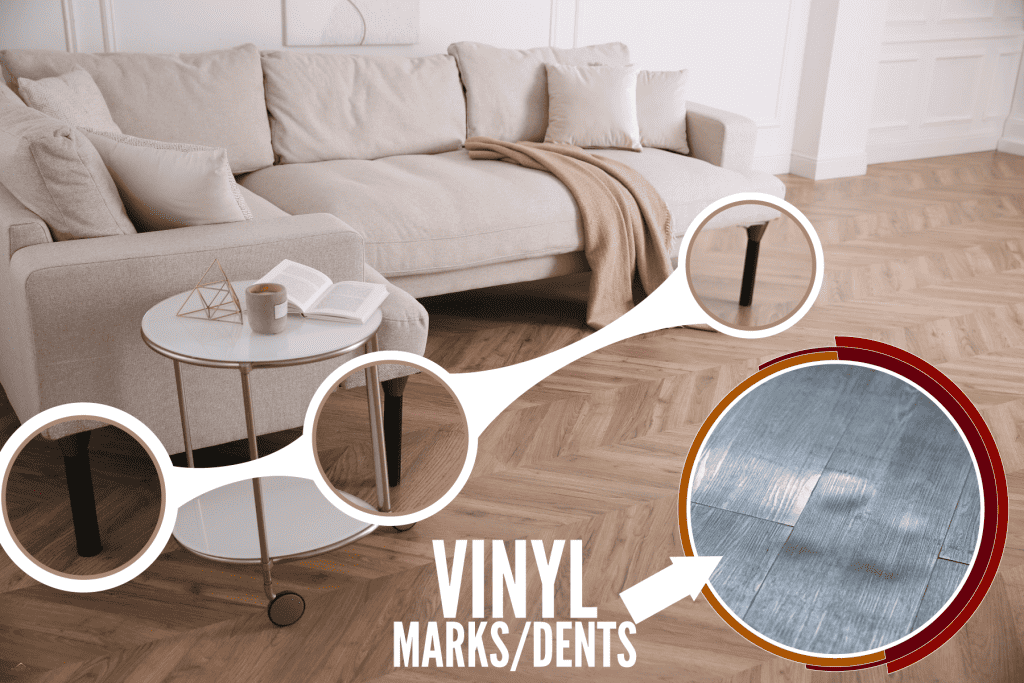
Ways to Prevent Dents and Marks on Vinyl Flooring
We sometimes add affiliate links and content that was curated and created by our team with the help of advanced ai tools to help showcase the best design styles.
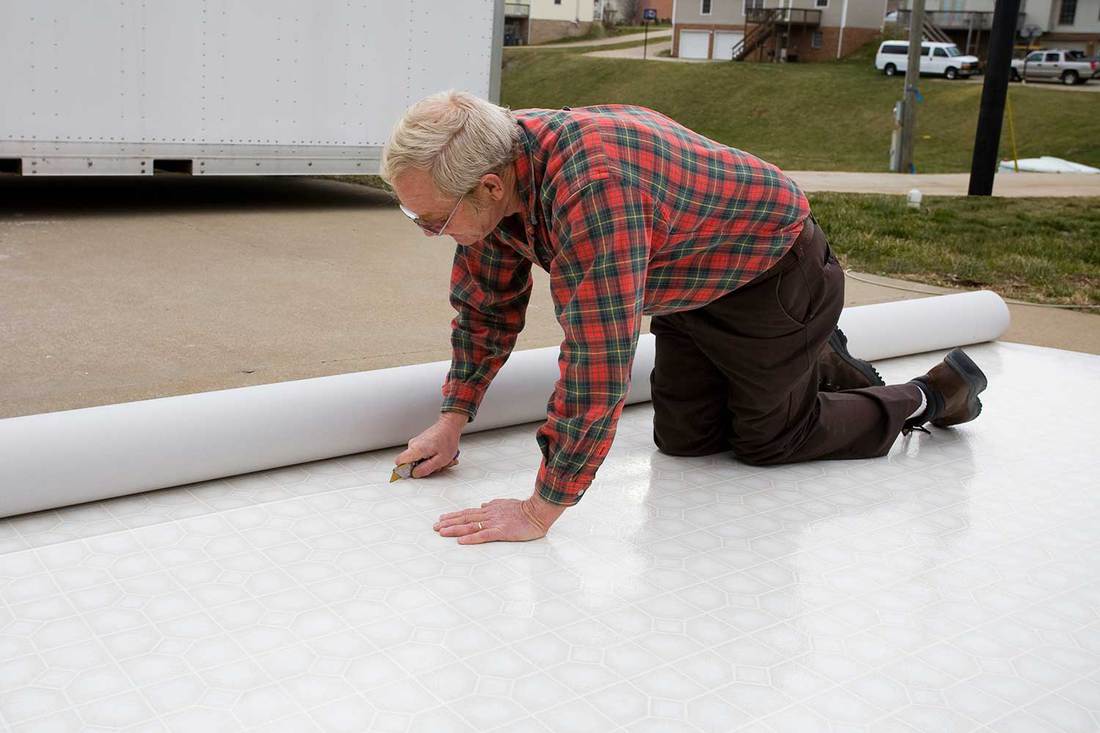
Use Floor Protectors
The best thing you can do to prevent your vinyl floor from getting dents is to use floor protectors. Not only can they help your vinyl flooring stay dent-free, but they can also prevent scratches and scuff marks when moving furniture across the floor. There are several different floor protectors available on the market, and you can even create your own by simply cutting a thick piece of rubber or felt and placing it beneath the edges or feet of the furniture.
See these floor protectors on Amazon.
Buy A Doormat
Another great way to keep your vinyl floors and scratch-free is to use a doormat. You'll be surprised at how much dirt and grime can affect the look of your vinyl flooring over time. Not only can this help reduce the amount of cleaning needed for your vinyl floors, but it can keep things like grit, rocks, and chemicals from entering your home and messing up the finish on your vinyl floors. Chemicals from tarmac and other surfaces can stick to your shoes and cause your vinyl flooring to become slightly discolored over the years.
Always Lift Heavy Furniture and Appliances
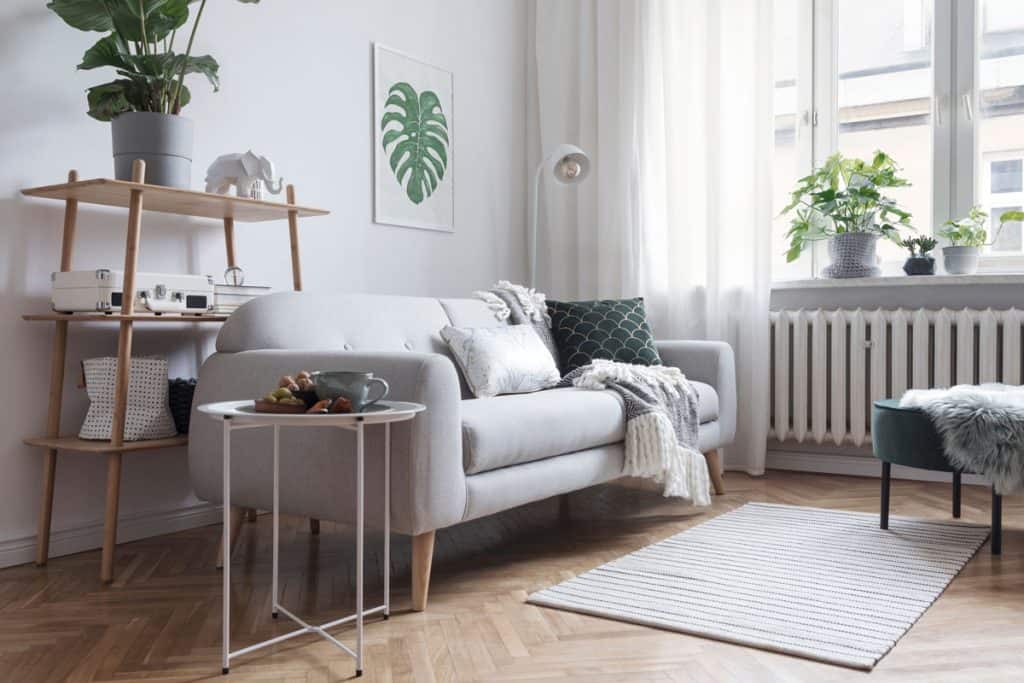
While you may not move furniture regularly, it can damage your vinyl flooring significantly if it's not done correctly. It's very tempting to drag a heavy appliance or piece of furniture over the vinyl to save time and effort, but this can be detrimental to your floor, causing it to scuff or scratch. The best thing you can do is lift any heavy items entirely off the floor when moving them or use a protective layer beneath them, such as wood boards, bed sheets, or small mats.
Avoid Rolling Casters
If you have vinyl flooring in a room with rolling chairs, be sure to protect the floor by installing a workplace mat. The wheels on the chairs can cut into the vinyl flooring, causing it to become scratched and dented. You should also consider buying chairs without wheels, installing felt tips, or applying another type of protective layer over the vinyl to keep it protected.
Don’t Let The Flooring Get Too Wet
Vinyl flooring is a waterproof surface. However, the edges around each tile may not have the best waterproofing. Water can easily seep through small cracks in these edges and eventually weaken the glue bond that holds the floor to the subfloor. If you have ever seen vinyl flooring with curled edges, this is typically a sign of water damage. When mopping your vinyl floors, be sure not to apply too much water, as you don't want to cause them to buckle on the edges or at the seams.
How To Remove Dents From Vinyl Flooring
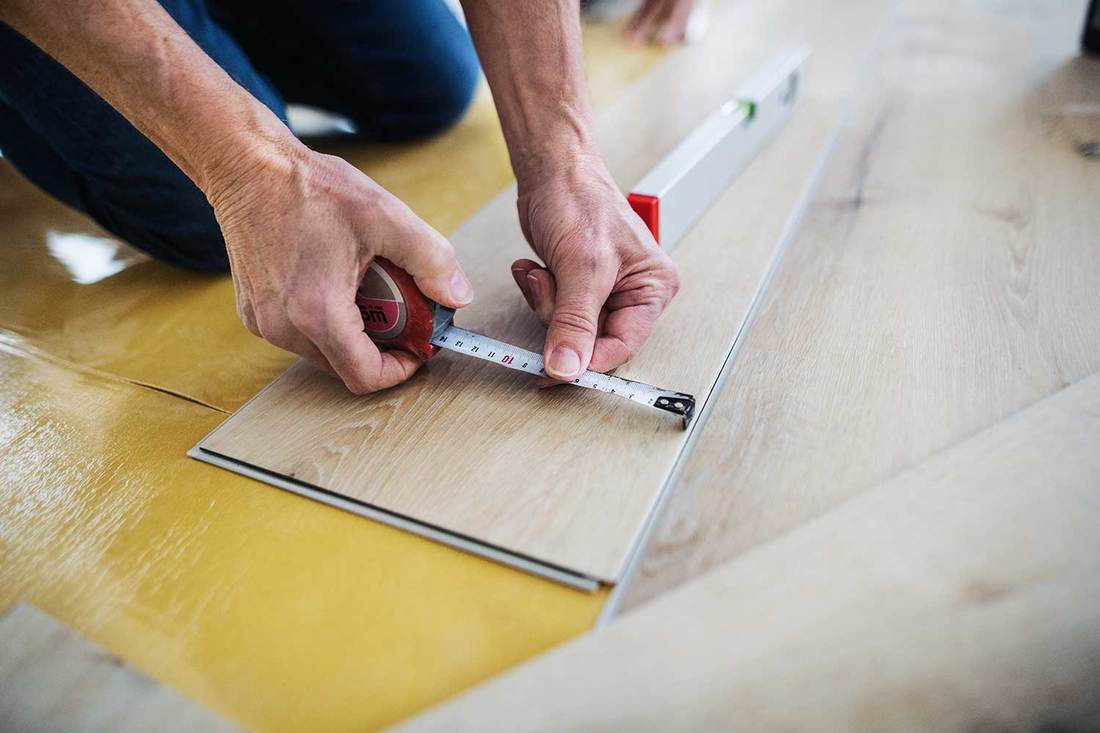
There are circumstances in which he may be able to remove small dents in your vinyl flooring instead of replacing the tile. Please note that this technique will only work with relatively small dents. Let's take a look at how.
Things you'll need:
- A clothing iron
- All-purpose cleaner
- Paper towels
- A wash towel
Turn on the iron and place it on a medium or the "Cotton" setting.
- Apply the all-purpose cleaner to your paper towel and use it to clean the affected area on the vinyl flooring. Ensure that it is entirely free of any dirt and debris and that there are no removable stains on the flooring area where the dent is located. Be sure to completely dry the area after cleaning, as you don't want it to cause steam to develop.
- Pour warm water on the dishtowel so that it is wet but not dripping with water. Next, lay the towel flat over the area of the dent.
- With the dish towel still lying on the floor, hold the iron over the towel so that it hovers over it. The iron should hover above the tile about one inch or so. Move the iron around in a circular motion so that the heat is directed toward the dent.
- After holding the iron over the flooring for about 3 to 5 minutes, place it down and check the dent to see if it is still visible.
See this clothing iron on Amazon.
How do you keep dents out of vinyl flooring?
The best way to prevent your vinyl flooring from being riddled with dents is to be mindful when placing and removing hard furniture and heavy appliances on it. Use floor protectors and mats to keep the feet of your furniture from making dents in the floor. When relocating furniture, always lift the furniture entirely off the floor, don't drag it. If you have rolling chairs, be sure to use rugs or PVC chair mats so that the chairs' casters do not damage the vinyl flooring beneath them.
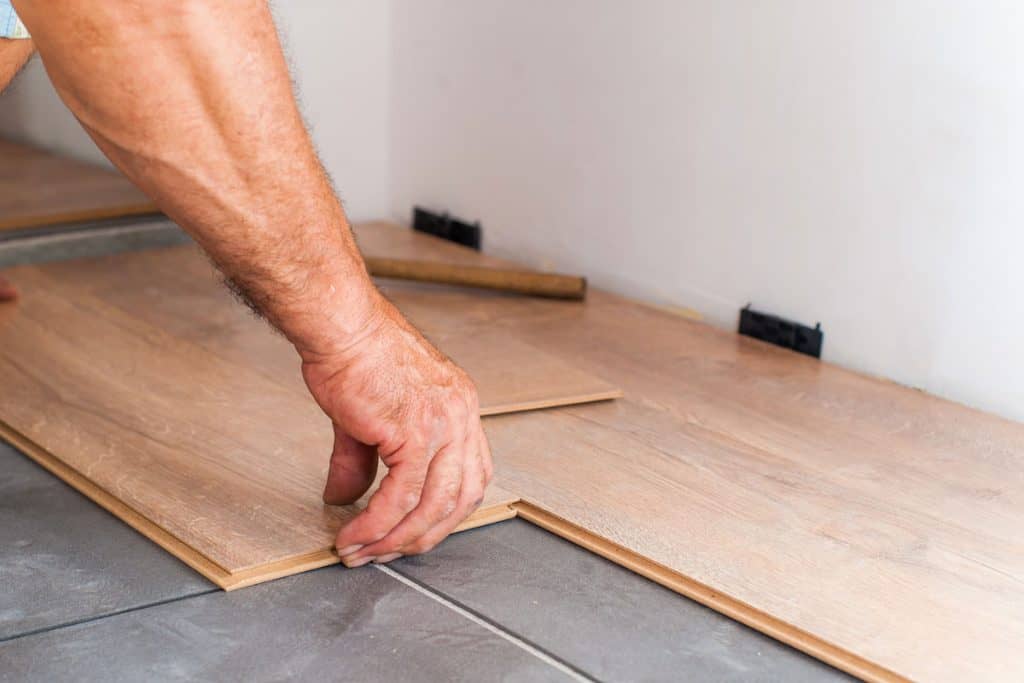
How much weight can you put on vinyl plank flooring?
On average, vinyl flooring can handle about 500 lb of weight. Items that usually fall into this weight range include furniture such as refrigerators, pianos, and ovens. Keep in mind that this furniture's weight and its immobility are likely to cause a dent in the vinyl flooring over time. If you are worried about your vinyl floors becoming damaged from heavy appliances, be sure to use floor protectors before installing it.
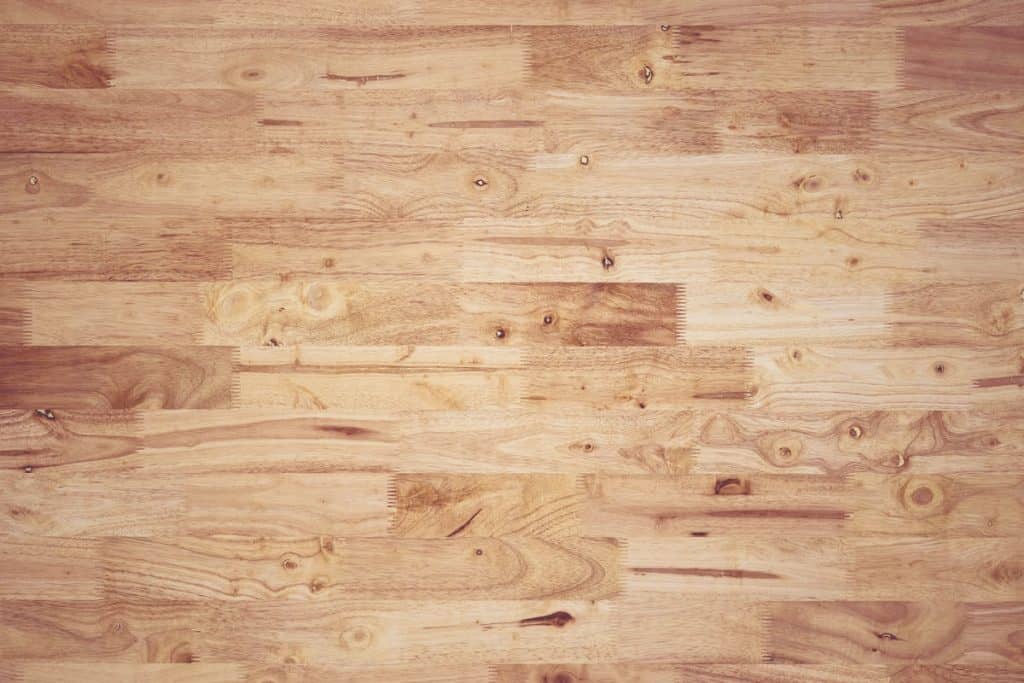
Does vinyl flooring scratch easily?
Not typically. Quality vinyl flooring is one of the most durable and scratch-proof flooring options available on the market. However, this does not mean that they are completely scratch-resistant. The best way to prevent scratches on your vinyl flooring is to be mindful when moving heavy pieces of furniture and to use dust mats to avoid tracking great from the street onto the floor, which can scratch the vinyl over time.
See these dust mats on Amazon.
What is the most durable flooring option?
Having a durable floor is an absolute must if you have a family or pets. After all, who wants to have to repair and replace flooring several times a year? Let's look at him a few of the most commonly used durable floor options.
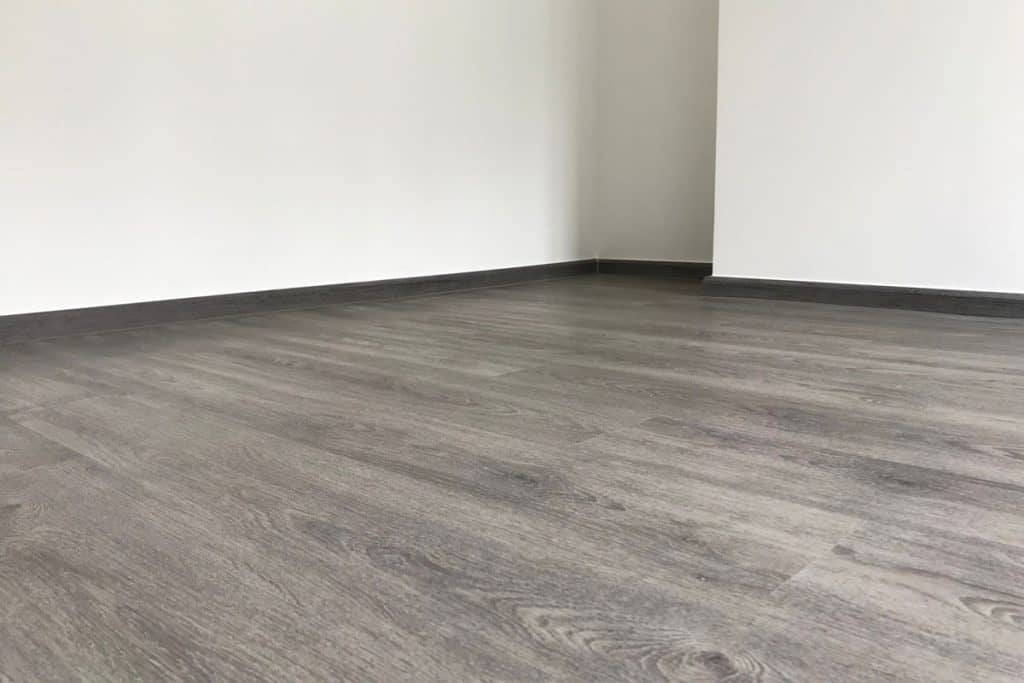
Engineered Wood
Engineered wood is a type of artificial wood made to look very similar to natural solid wood. While it does have an inexpensive plywood layer beneath it, it's covered with a veneer grain on the top. The advantage of engineered wood is that it is typically sold at a lower price point than natural hardwood, and it is scratch and dent-resistant. It's also less sensitive to humidity and room temperature changes, something that can be an issue with hardwood if you live in a tropical environment.
Hardwood
Hardwood flooring is also a great durable flooring option. You can coat it with polyurethane to help keep it free of scratches, and its hard surface is less likely to dent when compared to many other types of flooring options. There are also hardwood species that are more scratch-resistant than others and require less scratch protection. Hardwood flooring can range in price, depending on the species, but you can typically purchase slabs for about $2-$12.
Laminate
Laminate flooring is one of the most durable flooring options available on the market. Not only is it extremely durable, but it's also a very low maintenance type of flooring. You can find laminate flooring in a wide variety of patterns and colors to suit almost every kind of decor and stylistic choice. It's made up of several strong material layers and holds up well to stains, hard impact, and dents from heavy furniture. You can also buy laminate based on the level of durability that you're looking for.
Cork
While you may not see cork as commonly used as other flooring options, it's worth mentioning. Cork is a durable yet cushiony flooring option that can help ease tired feet and hold up well to fluctuating time climate and humidity. Made up of natural materials, cork can hang with the best of them when it comes to durability, and it can hide scratches very easily. Cork isn't that expensive to purchase compared to other types of flooring, and you can usually buy it for about $2-$8.
Wrapping Things Up
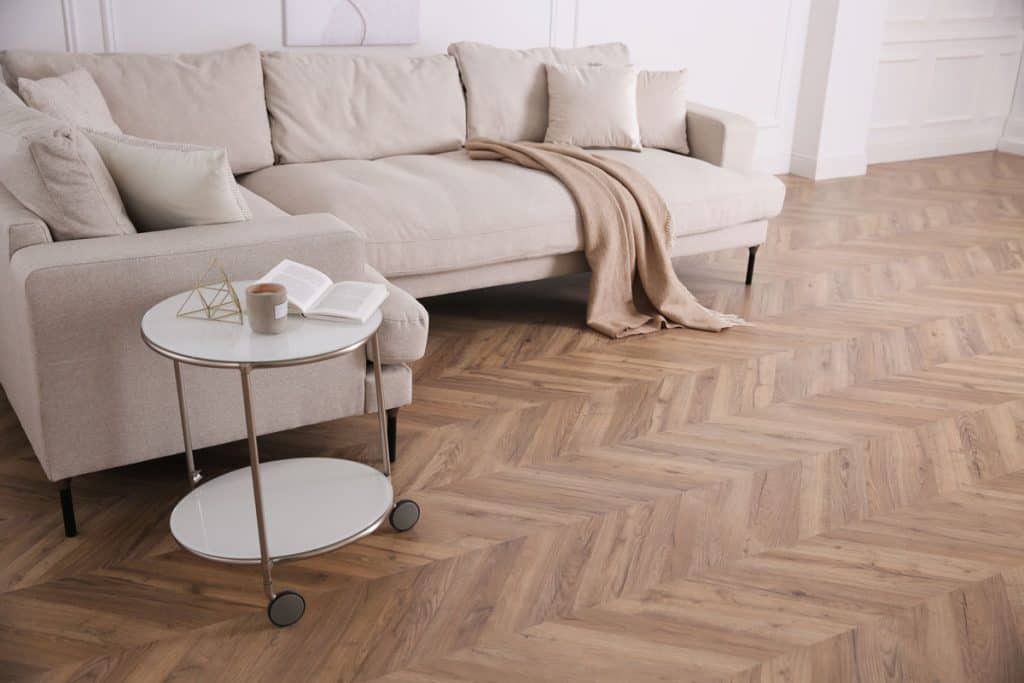
We hope that this post has shown you how to prevent dents and scratches on your vinyl floor. Remember, vinyl flooring is very durable, but mindfulness and intervention still goes a long way toward keeping it in the best condition possible.
Before you go, be sure to check out some of our other posts:
Dark Vs. Light Laminate Flooring – Which To Choose?
What Color Furniture Goes With Gray Flooring




